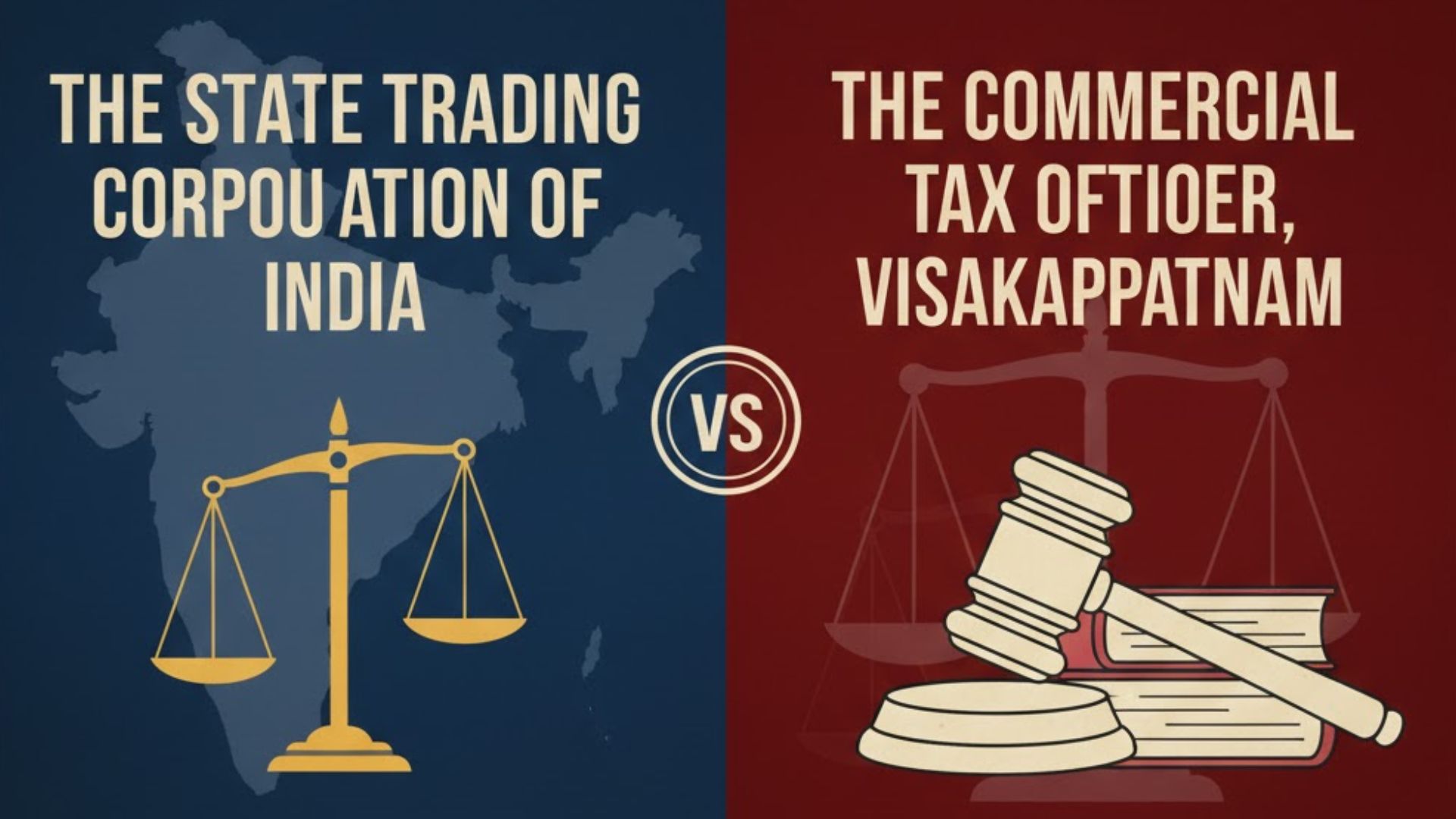
Case Summary: The State Trading Corporation of India Ltd. & Ors vs The Commercial Tax Officer, Visakhapatnam & Ors (1963)
Case Stats
(1963) 07 SC CK 0001
Name of the Court: Supreme Court of India
Case No: Writ Petition (Civil) Nos. 202–204 of 1961
Date of Decision: 26-07-1963
Bench: Full Bench
Hon'ble Judges: B. P. Sinha, C.J; S. K. Das, J; P. B. Gajendragadkar, J; N. Rajagopala Ayyangar, J; M. Hidayatullah, J; K. N. Wanchoo, J; K. C. Das Gupta, J; J. C. Shah, J; A. K. Sarkar, J
Final Decision: Disposed Of
[Judgment Source]
https://www.courtkutchehry.com/Judgement/Search/AdvancedV2?docid=281104
All Citations
AIR 1963 SC 1811; (1963) 33 CompCas 1057; (1964) 4 SCR 99
Facts of the Case
The State Trading Corporation of India Ltd. (STC), a company registered under the Indian Companies Act, 1956, and its shareholder, filed writ petitions under Article 32 challenging sales tax proceedings initiated by authorities in Andhra Pradesh and Bihar. STC claimed that it was a citizen under the Constitution since all its shareholders were Indian citizens, and therefore entitled to invoke fundamental rights under Article 19. Respondents raised preliminary objections: (1) whether a corporation is a 'citizen' within Article 19; and (2) whether STC, wholly owned by the Government of India, could still enforce fundamental rights against the State.
Law Points Raised
1) Whether a juristic person like a company can be considered a 'citizen' under the Constitution.
2) Whether Article 19 rights are available to corporations.
3) Whether a wholly government-owned corporation is an organ of the State under Article 12.
4) Distinction between rights available to 'any person' and rights available only to 'citizens'.
5) Applicability of the Citizenship Act, 1955, to juristic persons.
Acts / Provisions / Articles Referred
• Constitution of India — Articles 14, 19(1), 32, Part II (Citizenship), Part III (Fundamental Rights)
• Citizenship Act, 1955 — Section 2(f)
• Indian Companies Act, 1956
Judgments Referred
• The Sholapur Spinning and Weaving Co. Ltd. cases (First and Second)
• Precedents on corporate rights under Part III
Obiter Dicta
The Court stressed that the Constitution makes a clear distinction between 'citizens' and 'persons', and that juristic persons, while entitled to rights granted to 'any person', cannot claim rights reserved for 'citizens' such as those under Article 19.
Ratio Decidendi
A company incorporated under the Companies Act is not a citizen and thus cannot claim fundamental rights under Article 19. Rights under Article 19 are available only to natural persons who are citizens of India.
Final Ruling
The Supreme Court held that STC, as a juristic person, could not claim rights under Article 19. The matter on other merits was left to the Constitution Bench to decide. Preliminary objections sustained.
Summary
This case established that Article 19 rights are exclusive to natural persons who are citizens of India, and cannot be claimed by companies or other juristic persons. It clarified the scope of 'citizenship' in constitutional law and reinforced the distinction between rights available to 'citizens' and those available to 'any person' under Part III.